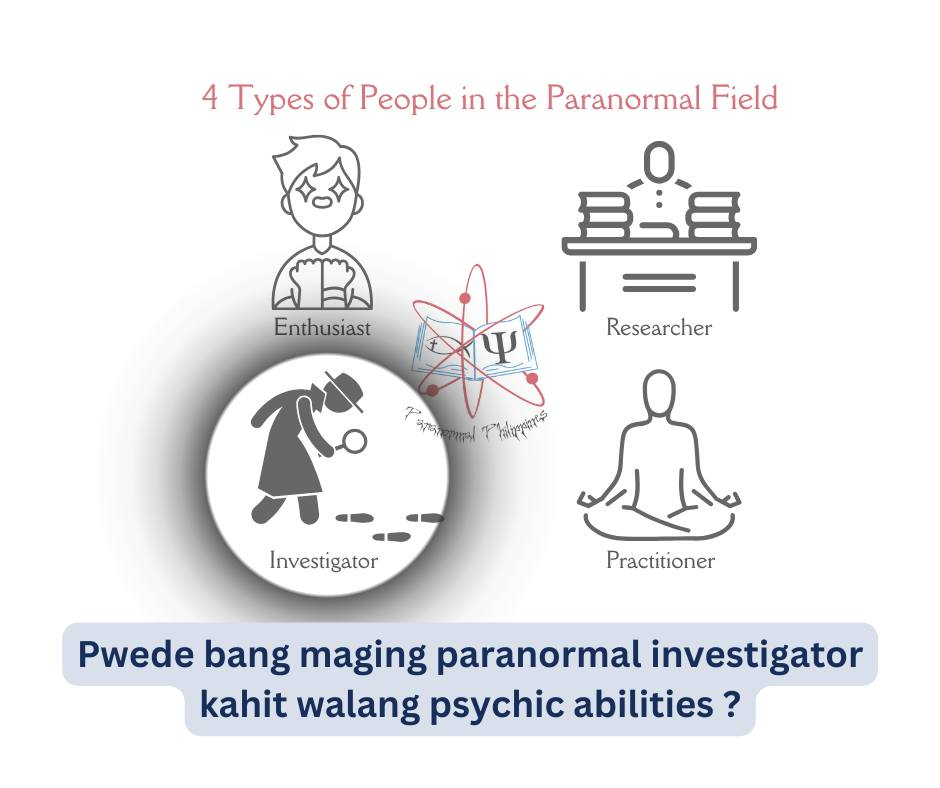 🏠
🏠 |
🧭 |

Different people trust different ways of figuring out what’s true. Some stick to one method, often without realizing it.
Take armchair debunkers, for example. They often lean heavily on reason and what they've read or heard from "authorities" — scientists, skeptics, academics — to dismiss paranormal events, even when they haven't looked into the cases themselves.
On the other side, some faith-driven paranormal investigators feel strongly that something supernatural is involved in a case. They trust their instincts or spiritual discernment but forget to rule out natural causes, psychological factors, or hoaxes. This sometimes leads to embarrassment when other experts point out explanations they missed.
There are other combinations, too:
– Someone might rely mostly on sensory observation but ignore emotional or intuitive impressions.
– Another might base their belief entirely on personal experience, resisting any logical critique.
– Some might flip between reason and intuition, depending on what suits their current belief.
The problem isn’t in using any of these — the issue is in using them blindly or unevenly.
Way of Knowing | Some Major Advantages | Some Major Disadvantages |
Sensory Perception (Empiricism) | 1) --knowledge is grounded in observable "facts" and is thus termed objective 2) --claims of knowledge may be tested and criticized by others relatively easily 3) --it is basic to the scientific method, which has proven to be a valuable process in establishing a great deal of our knowledge in the modern world 4) --it is a way of knowing that often can be tested repeatedly | 1) --not all phenomena are easily observable 2) --our senses have limits (e.g., human hearing differs from that of other animals) and can at times mislead us (e.g., optical illusions) 3) --observable data takes on meaning by the way that it is organized and interpreted, and such organization/interpretation may introduce bias 4) --emphasis on "objectivity" may mask "subjective" influences |
Reason / Logic (Rationalism)
| 1) --it does not depend upon the limits of sensory observation 2) --it is checked by rules of logic and internal consistency 3) --in its least formal practice, this is often a "common sense" way of knowing | 1) --it works with abstractions that may be unrelated to the "real world we live in" 2) --logical arguments may hide logical fallacies and rhetorical conceits 3) --what at first may seem "logical" may turn out to be merely social/cultural convention |
Authority / Testimony | 1) --it utilizes the wisdom of "great" people and traditions 2) --many "authorities" are recognized as such because they have been time-tested through some social process of validation 3) --utilizing authorities can conserve our own effort Comment: Ideally, these authorities should be known for their integrity and have no conflicts of interest in disseminating their statements or research findings. They should also not discourage others to question their assertions and avoid using the "appeal to authority” fallacy. | 1) --authorities can be wrong 2) --authority is sometimes largely just a function of the popularity or political power of a person or tradition 3) --deference to authorities can hinder our own critical judgment or cause us to discount our own wisdom Comment: Authorities may be driven by factors like biases and the desire for financial gain, power, reputation management, or to further specific agendas. Recognizing these motives is crucial for assessing the truthfulness and reliability of their statements. |
Intuition / Inspiration / Revelation Comment: also ESP | 1) --it could allow us to "know" things that may be unavailable to us by other ways of knowing 2) --it may allow us a direct and unmediated form of knowledge 3) --it seems to produce knowledge that is personally powerful and deeply affecting 4) --it may allow us to tap into a certain "emotional wisdom" (as opposed to what is purely intellectual) or a transcendent or divine knowing | 1) --it deals with personal and private experience that is relatively inaccessible to others or to outside critical evaluation 2) --it may be quite vulnerable to personal misconceptions/delusions 3) --because it is such a personal and private way of knowing, it may be hard to communicate/translate this knowledge for others' use 4) --it may be the subtle product of undifferentiated other ways of knowing
|
Source: Ehman, J. (n.d.). Ways of knowing. http://www.acperesearch.net/knowing.html
Because we genuinely want to know the actual truth (hopefully), not just confirm what we already believe, it helps to get clear on how we’re trying to get to the truth.
That’s why I am sharing this compass — to show the four core ways humans typically know things:
Sensory Perception (Empiricism)
-
Reason / Logic (Rationalism)
-
Authority / Testimony
-
Intuition / Inspiration / Revelation
Each plays a role in how we build our understanding of unusual events (and things in general). Careful investigators often combine these ways — while staying aware of their pitfalls — to approach truth with both rigor and openness.
Honesty, Humility, Curiosity keep us centered… but it’s the balance of these methods that helps us find our way.
This is the pic version in case you want to screenshot it. The table above is for you to copy-paste the words to a document if you want to do so.
This is the Google Docs version and includes a more elaborate table I made that includes:
4 Ways Of Knowing
Source and Nature
Some Roles
Limitations
How They Support Each OtherMore Info: Climbing the Mountain of Truth
- C.E.
 🏠 |
🧭 |
🏠 |
🧭 |




Comments
Post a Comment